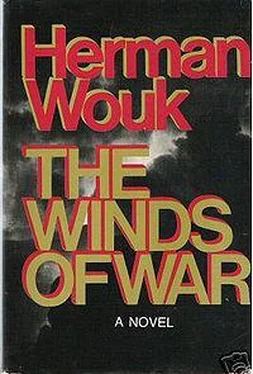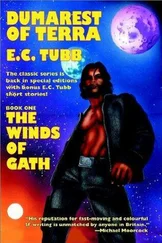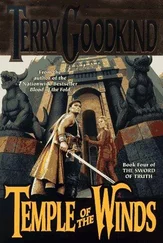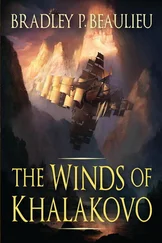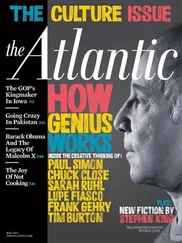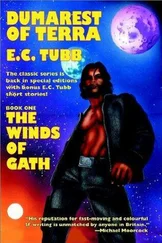Herman Wouk - The Winds of War
Здесь есть возможность читать онлайн «Herman Wouk - The Winds of War» весь текст электронной книги совершенно бесплатно (целиком полную версию без сокращений). В некоторых случаях можно слушать аудио, скачать через торрент в формате fb2 и присутствует краткое содержание. Год выпуска: 1971, Издательство: Collins, Жанр: Историческая проза, на английском языке. Описание произведения, (предисловие) а так же отзывы посетителей доступны на портале библиотеки ЛибКат.
- Название:The Winds of War
- Автор:
- Издательство:Collins
- Жанр:
- Год:1971
- ISBN:нет данных
- Рейтинг книги:4 / 5. Голосов: 1
-
Избранное:Добавить в избранное
- Отзывы:
-
Ваша оценка:
- 80
- 1
- 2
- 3
- 4
- 5
The Winds of War: краткое содержание, описание и аннотация
Предлагаем к чтению аннотацию, описание, краткое содержание или предисловие (зависит от того, что написал сам автор книги «The Winds of War»). Если вы не нашли необходимую информацию о книге — напишите в комментариях, мы постараемся отыскать её.
About the Author
Herman Wouk's acclaimed novels include the Pulitzer-Prize winning
;
;
;
;
;
; and
.
The Winds of War — читать онлайн бесплатно полную книгу (весь текст) целиком
Ниже представлен текст книги, разбитый по страницам. Система сохранения места последней прочитанной страницы, позволяет с удобством читать онлайн бесплатно книгу «The Winds of War», без необходимости каждый раз заново искать на чём Вы остановились. Поставьте закладку, и сможете в любой момент перейти на страницу, на которой закончили чтение.
Интервал:
Закладка:
Speeding made Janice nervous when she wasn’t at the wheel, and Warren knew it, but he whistled down to Pearl City like an escaping bank bandit. After a few moments of fright, his wife began to enjoy the breakneck ride. Everything was different on this side of time, the side after the Japs attacked; more adventurous, almost more fun. How handsome Warren looked, how competent, how desirable, handling the wheel with a relaxed touch of his unhurt arm, puffing a cigarette in his taut mouth, watching the road through narrow eyes! Her boredom and irritability were gone and forgotten. The black puffballs were far thicker than before, and through the windshield they saw one Japanese plane after another burst into flames and fall. Each time Warren cheered.
The fleet landing was a mess and a horror. Sailors with blistered faces and hands, with skin hanging in yellow or black scorched pieces from bloody flesh, were being helped out of whaleboats or lifted off in stretchers and loaded onto hospital trucks by men in red-smeared whites. Wounded and unwounded alike were bawling obscenities, unmindful of the women crowding the landing and gnawing their fingers as they scanned the faces of the hurt men; unmindful too of the children who played and joked around the women’s skirts — those not old enough to stare with round eyes at the burned sailors. The coxswain of a whaleboat full of sheeted bodies was trying to come alongside, and a fat old chief in khaki kept cursing at him and waving him off. Over all this noise rolled the massive thumping and cracking of guns, the wail of sirens, the blasts of ships’ horns, and the roar of airplanes, for the second attack was now in full swing. There was a heavy smell of firecrackers in the air, mingled with a sour stink from the black oil burning on the water all around Ford Island and sending up clouds of thick smoke. Hands on hips, cigarette dangling from his mouth, Warren Henry calmly surveyed the terrible and spectacular scene.
Janice said, in shaken tones, “I don’t know how you’ll ever get across.”
He nodded absently, then strode to the end of the landing to a long canopied boat. Janice hurried after him. “Coxswain, whose barge is this?”
The immaculate sailor at the tiller flipped a hand to a white hat perfectly squared on his close-cropped head. Big-jawed, bronzed, and tall, he eyed Warren’s gory life-jacket curiously, and drawled, “Suh, this is Admiral Radburn’s barge.”
“Is the admiral on the beach?”
“Yes, suh.”
“Do you know how long he’ll be?”
“Negative, suh, he just told me to wait.”
Glancing back at the milling boats along the landing, Warren said, “Well, look, here’s how it is. I’m Lieutenant Henry, off the Enterprise . I’m a dive bomber pilot.”
“Yes, suh?”
“I flew in this morning, just when the attack started. The Japs shot me down. I have to find another plane and get into this fight, so how’s for taking me over to Ford Island?”
The coxswain hesitated, then straightened up and saluted. “Come aboard, suh. The important thing is to get those sons of bitches. Excuse me, ma’am.”
“Oh, quite all right,” Janice laughed. “I want him to get those sons of bitches too.”
Hair stirring in the wind, bloody lifejacket dangling open, Warren stood in the stern sheets, hands on hips, smiling at her as the barge pulled away.
“Get them!” she called. “And come back to me.”
“Roger. Don’t drive back till these bastards quit, or you may get strafed. Be seeing you.”
He ducked as a red and yellow Japanese plane passed right over his head, not twenty feet in the air, its motor noisily coughing and missing; then it turned sharply and flew away across the channel, over the capsized crimson hull of a battleship. Warren straightened, still grinning. Janice watched the admiral’s beautiful barge, all new gray paint, shiny brass, snowy curtains and cordwork, carry her bloodstained husband away to the flaming smoky mid-harbor island that was the Navy’s airfield. He waved and she wildly waved back. She was horror-stricken by what she had seen at the fleet landing, yet never had she felt so aroused, so full of life, so plain damn good, and so much in love.
An Army spokesman came on the automobile radio as she drove home, urging calm, warning against sabotage, and assuring the people that the second attack had been turned back with little further damage to the fleet, and at fearful cost to the Japanese. All-clear sirens were wailing over the island. She found the maid in an armchair listening to the radio, which was playing Hawaiian music again.
“Victor’s been very quiet, Missus Henry,” she said. “Not a sound. Isn’t it terrible about the war? But we’ll beat them.”
“ Sheep dip — the tar that causes tobacco harshness,” said the jolly voice. “Lucky Strike is the only cigarette from which every trace of sheep dip—”
In his bedroom Victor coughed, a deep harsh cough like a man. “Why, there he goes now,” Janice said.
“The very first time, ma’am, since he got his medicine. I’ve been listening.”
Janice’s watch read eight minutes to ten. “Well, it’s been about two hours. I guess that’s all the medicine’s good for, I’ll give him more.” The baby still felt cool. He took the spoonful of brown syrup without opening his eyes, sighed, and turned over. Janice sank in a chair, perspiring and spent, thinking that a war had begun and the Pacific fleet had been smashed between her baby’s two doses of cough medicine.
Chapter 60
The sun poked up over the horizon, painting a red flush on the Clipper’s wing. Wide awake, Victor Henry watched the brightening disk rise free of the ocean. The flying boat’s engines changed pitch, rasping at his nerves. Since he had said good-bye to Pamela Tudsbury in Red Square in the snow, he had been shaken up in trains, planes, boats, trucks, jeeps, sleighs, and even oxcarts. He thought his bones would vibrate aboard the California for a month. Forty-eight hours, two more fifteen-hundred-mile hops, and if nothing went wrong the trek halfway round the earth would be over.
The sun moved sidewise. The turn was so shallow that he felt no tilt in his seat. A pink ray shot across his lap from the opposite side of the plane. Pug left his seat and walked forward into the galley, where the steward was scrambling eggs. “I’d like to talk to Ed Connelly if he’s free.”
The steward smiled, gesturing at the door marked FLIGHT DECK. The naval officer and the Clipper captain had been eating meals together and sharing rooms at the island hotels. In the dial-filled cockpit the engines sounded much louder, and beyond the plexiglass the void purple sea and clear blue sky stretched all around. The captain, a beefy freckled man in shirt-sleeves and headphones, looked oddly at Pug Henry.
“Morning, Ed. Why are we heading back?”
Connelly passed him a radio message, hand-printed in red ink on a yellow form.
CINCPAC HARBOR CIRCUIT GENERAL PLAIN LANGUAGE MESSAGE QUOTE AIR RAID ON PEARL HARBOR X THIS IS NO DRILL UNQUOTE X HEAVY GUNFIRE IN ANCHORAGE X RECOMMEND YOU RETURN WAKE TILL SITUATION CLARIFIES
“How about that?’ The captain removed the sponge-rubber headphones and rubbed his curly red hair. “Do you suppose it’s for real?”
“I wouldn’t doubt it,” said Victor Henry.
“I’m damned. I honestly never thought they’d go. Attacking Pearl! They’ll get creamed.”
“Let’s hope so. But what’s the point of turning back, Ed?”
“I guess they might be hitting Midway, too.”
“Well, they might be hitting Wake, for that matter.”
“I’ve talked to Wake. All quiet.”
Victor Henry returned to his seat, agitated though far from astonished. Here it was at last, he thought: an attempted sneak attack on Pearl, in the midst of a war scare. The uninventive Asiatics had elected to try the Port Arthur trick again, after all. But surely this time they were running their heads into a noose! The United States in 1941 wasn’t Czarist Russia in 1904. One phrase in Cincpac’s message nagged at him: This is no drill . That was silly, to a fleet on war alert! Some low-level communicator must have tacked that one on.
Читать дальшеИнтервал:
Закладка:
Похожие книги на «The Winds of War»
Представляем Вашему вниманию похожие книги на «The Winds of War» списком для выбора. Мы отобрали схожую по названию и смыслу литературу в надежде предоставить читателям больше вариантов отыскать новые, интересные, ещё непрочитанные произведения.
Обсуждение, отзывы о книге «The Winds of War» и просто собственные мнения читателей. Оставьте ваши комментарии, напишите, что Вы думаете о произведении, его смысле или главных героях. Укажите что конкретно понравилось, а что нет, и почему Вы так считаете.
